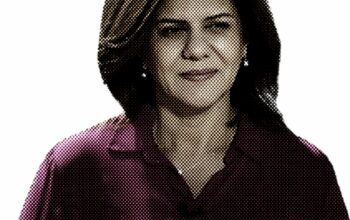A watchdog is an autonomous, non-governmental organisation, person or group that is dedicated to holding governments, organisations and media outlets accountable and to assessing their transparency. Watchdogs assess key information of these organisations and groups, such as their ethics, efficacy, finances and structure. Watchdogs organisations regulate the sector by preventing fraudulent activity or dishonest distribution and use of funds. The term watchdog can also be a metaphor that implies that certain groups, such as journalists, guard knowledge in society to represent citizens and hold powers accountable.
But what is the need for accountability from an external organisation? When a Non-governmental Organisation is struggling with failure, waste and corruption, the beneficiaries and donors are often unaware of this. Despite having either financial or time-based investment so to be unaware of the misdoings of the organisation I creates an information imbalance. Even if donors and beneficiaries requested this information from the NGO, the access ability to analyse this data takes time and expertise. This gap in knowledge and accountability is filled in by watchdog organisations who monitor and analyse information from NGOs in a way that the beneficiaries cannot. They also have the ability to request information from NGOs and question reports and data, that’s to their specialised knowledge. Watchdogs have the capacity to measure and compare NGOs based on established criteria. This criteria is fair in its analysis and does not ask for unmanageable information or standards, which is key to understanding why watchdog organisations are so active and are not often challenged.
Some criticisms of watchdogs include bias, especially in the case where journalists are considered watchdogs. Some journalist watchdogs favour corporations over the government as a method of saving business interests. In this case, they are actively looking for faults in policy, acts and speeches. Watchdogs, by the definition provided by Skovsgaard should not represent any specific interests but they should provide the view of different and opposing views in a news story. They should be as objective as possible and be equally critical of all sides and parties involved.
Fact-checking is an integrated part of news and journalism outlets, especially in the west. Fact checkers can also be individuals, action groups or Non-governmental organisations. Nonetheless, fact-checking is becoming an all more prominent and necessary part of news coverage, namely political. It deploys a number of strategies that categories a statement as accurate or inaccurate, as facts should not have any room for ambiguity. Fact-checking is openly welcomed by various media outlets as well as their consumers, as well as politicians whose opponents have experiences heavy criticized through fact-checking. Fact-checking sheds lights on media that is catchy and can come under the category of fake news.
Nonetheless, fact-checking has its disapproval. Fact-checkers attempt to fact check statements that never claimed to be fact, therefore they are not necessarily true or false. Fact-checkers take the act of fact-checking further and instead engage in a practice of attempting to find truth in an statement rather than just simply fact-checking. The difficulty in fact-checking also lies in the fact that fact-checking exists primarily to fact-check politics, policy, economics and history to name a few examples. These subjects are often very subjective, complex and ambiguous so ‘fact’ can be difficult to distinguish due to a lack of consensus of what is truth and what is not. Furthermore, the people making these statements make a large number of statements on a regular basis, but not all of them get fact-checked. This raises the question of bias and selective fact-checking that threatens the legitimacy of fact-checking groups. Fact-checking groups also tend to break down one fact into several sections and determine those sections as true or false, or they group multiple facts together as one fact. This reduces the legitimacy of the fact-check.
But what is the difference between fact-checking and watchdogs? It is true that both watchdog groups and fact-checking groups have the very simple purpose to ensure truth is being sought. The difference between them is little, however it is still present. Watchdog groups monitors all activities to ensure that the company is not engaging in malpractice, unethical behaviour or illegal activity. Fact-checking groups are a branch of media news outlets that analyse statements, often through speech, as either true or false. The major difference between fact-checking and the action of watchdogs is that watchdogs analyse data, policy and information existing in the structure of people, organisations and governments, whereas fact-checking tends to analyse discourse, media and news to either be only true or only false. Watchdogs have a scale of good and bad, right and wrong, and true and false, whereas fact-checking groups can only offer true or false.
The limitations of both watchdogs and fact-checking groups is skepticism from the public. They either have little faith in them, do not use them often enough for them to be useful, do not pay attention to what they have to say or do not believe that the watchdogs or fact-checking group is knowledgeable enough about the subject to make an informed stance. The public puts pressure on journalists to fulfill their role as watchdogs, particularly in the financial and political sector. To conclude, watchdog and fact-checking groups both serve to seek information on sectors of society in the public interest. However, there is a possibility of bias and lack of knowledge that could reduce the legitimacy and public support of watchdogs and fact-checking groups.
Mariam Sohail



